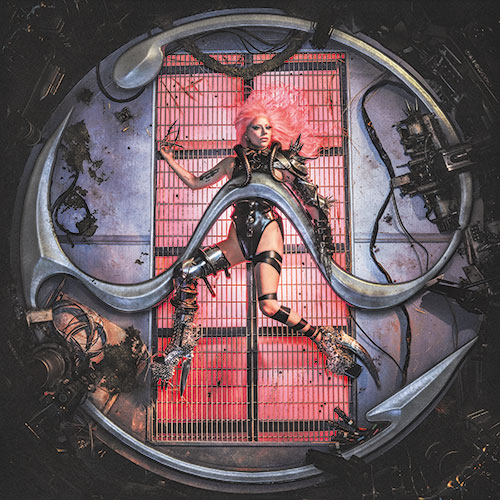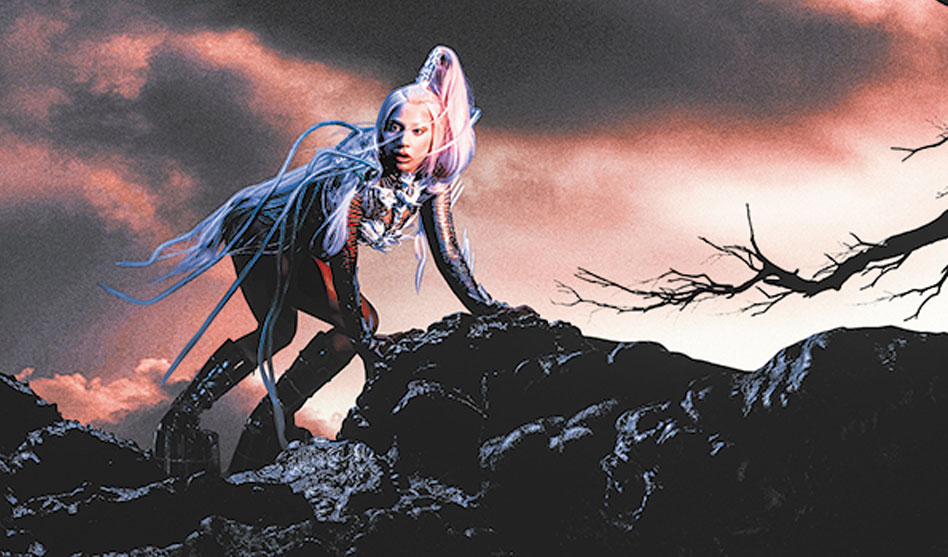With ‘Chromatica,’ Lady Gaga returns to her driving dance beats, but at a cost
ARNOLD WAYNE JONES | Executive Editor
jones@dallasvoice.com
When Lady Gaga burst into the public consciousness more than a decade ago, her signature blend of vibrant vocals and pulsating dance beats made her an instadiva in the gay community: Perfect for sweating it up on the club floor or providing a driving background at a backyard pool party. She was sexy without being trashy, pop-friendly and young, but not douchey (Kesha, anyone?). Millennials, especially those who appreciate a retro vibe, had their own Madonna.
But Gaga was also eclectic and unexpected. “Just Dance” and “LoveGame” were made for moving to, but “Poker Face” and “Paparazzi” had off-beat rhythms; by the time “Bad Romance” hit the charts, she was not just a Lady — she was a queen.
But she mixed it up, infusing “You and I” with a country flavor; she veered into protest songs (“Til It Happens to You”), and released an entire album of standards dueted with Tony Bennett, proving her bona fides as a master of the ballad as well (“Joanne,” “Million Reasons”)… a rep cemented when she won an Oscar for the inescapable “Shallow” from A Star is Born. In fact, you could make a case that she hasn’t released a dancy hit single since “Applause.”
 That all changes with Chromatica. On this 16-track album (13 tracks if you don’t count the three brief, eponymous instrumentals peppered throughout), Lady Gaga seems to have evolved once again from critical and artistic legitimacy into pop goddess of the dance floor. This isn’t a complaint — not exactly. The hooks on many of the songs are catchy and sure to be bright spots in the dour black hole that has been 2020. But collectively, it does seem a bit one-note. It makes us realize that we love the Gaga who sings about broken hearts and sexual assault as much as the one who gets our blood pumping.
That all changes with Chromatica. On this 16-track album (13 tracks if you don’t count the three brief, eponymous instrumentals peppered throughout), Lady Gaga seems to have evolved once again from critical and artistic legitimacy into pop goddess of the dance floor. This isn’t a complaint — not exactly. The hooks on many of the songs are catchy and sure to be bright spots in the dour black hole that has been 2020. But collectively, it does seem a bit one-note. It makes us realize that we love the Gaga who sings about broken hearts and sexual assault as much as the one who gets our blood pumping.
Chromatica also reinforces a familiar trope (criticism?) of Gaga — that she steals a lot from prior divas, especially Madonna. The album’s first single, “Stupid Love,” conjures not only Gaga’s own “Born This Way,” but Madge’s “Express Yourself,” to which “Born This Way” was quickly compared. It’s even more pronounced on “Babylon,” which almost seems like a “Vogue” rip-off. The similarities feel boldly intentional. Gaga even mimics The Material Girl’s tendency to affect a faux British accent on random lyrics. But hey, if you’re gonna steal, steal quality.
Chromatica also employs more aggressive production tricks: AutoTune (something Gaga has never needed vocally, used here merely for its robotic effect), echo, layering, electronica. It feels slightly over-produced… which of course is a hallmark of dance music.
The second single, “Rain on Me” (a duet with Ariana Grande) has been, for me and my friends in the two weeks since it dropped, an infectious playtune, the kind of song that can interrupt a conversation, or which grabs our attention as soon as the video comes on. It makes terrific use of Grande’s own sizable talents; Gaga is only 34, but here she comes off as the elder statesman sharing the stage with someone who might well be her successor down the road (Grande is 26). Ariana isn’t the only collaborator; she pairs with K-pop sensations BLACKPINK on “Sour Candy,” and even Elton John on “Sine from Above,” another fun hit.
Gaga still delves into one of her favorite topics — her own relationship with her own fans and celebrity — but she does so while couching the ambivalence in dance beats. On the ironically named “Fun Tonight” (whose title is always paired as I’m not having fun tonight), she references some of her own prior singles with a tinge of regret: Love the paparazzi, love the fame / even though you know it causes me pain / I feel like I’m in a prison hell / stick my hands through the steel bars and yell. In the hands of a less capable and appealing artist, such lyrics could sound self-pitying; here they are more resignedly confessional. She explores hurt of a different type — romantic — on the serviceable “Plastic Doll.”)
It would be wrong to characterize Chromatica as a disappointment, despite an element of sameness to many of the tracks and a dearth of ballads, which she’s so good at. Then again, Madonna was always hairpinning on her fans, challenging them to come along for the ride. We’re with you, Gaga.


Yas! She back and hopefully we’ll be back on the dance floor soon!